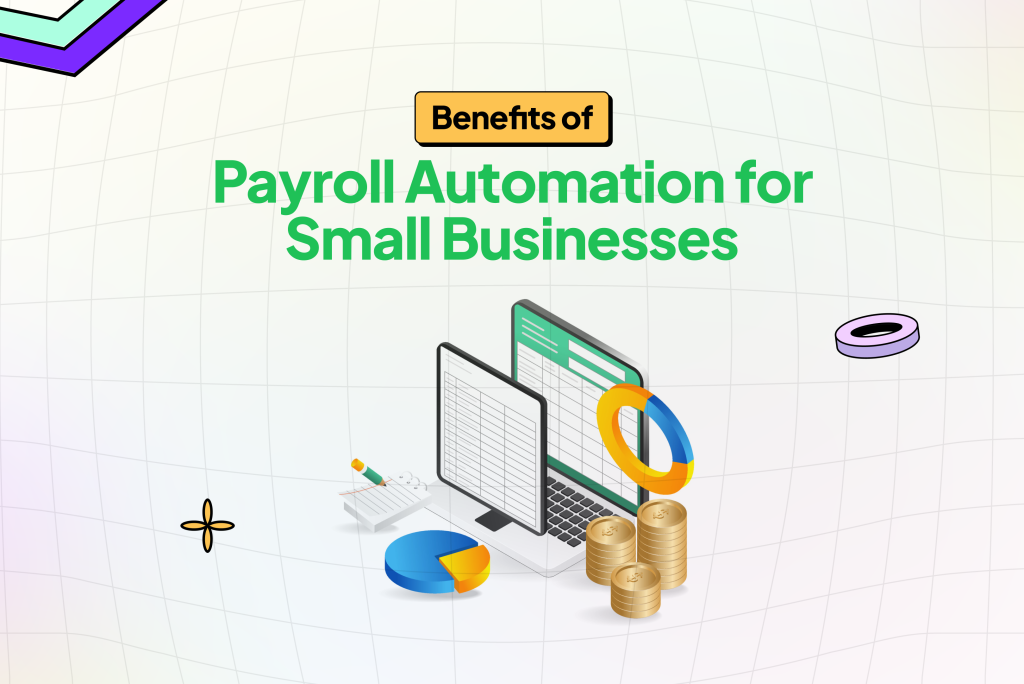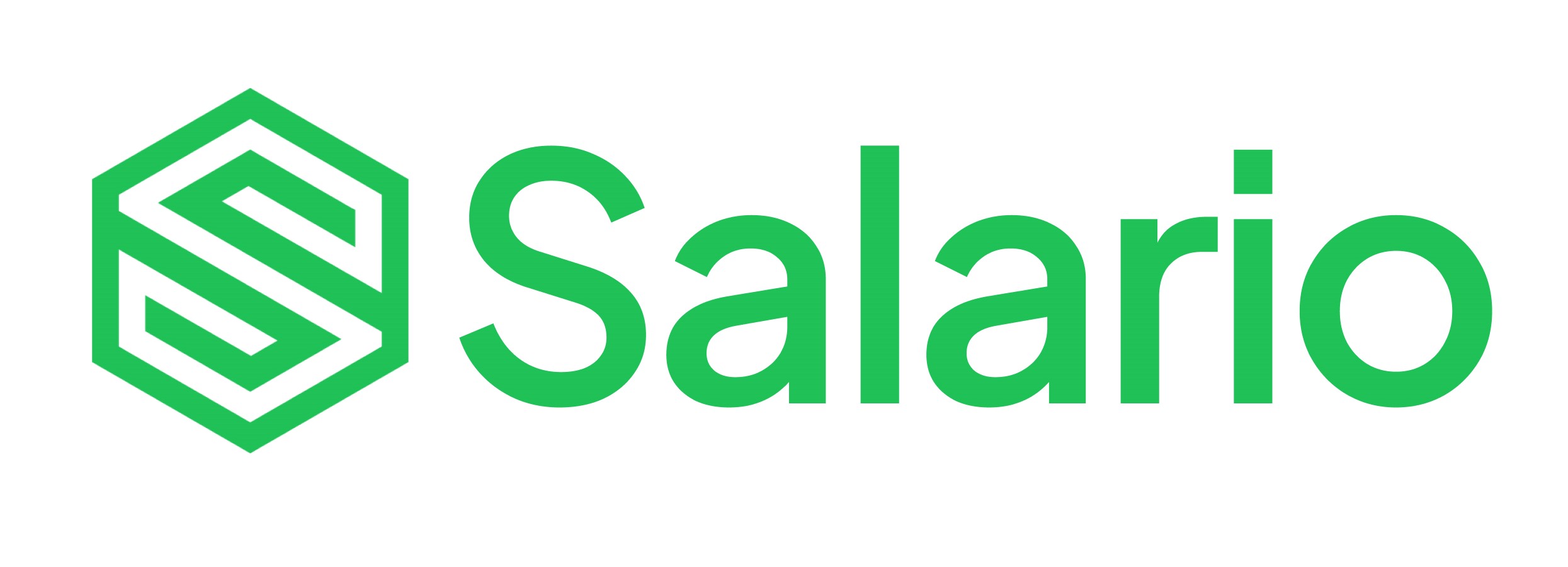
Small businesses are often on a tight budget, constantly on the lookout for ways to streamline operations, save costs, and focus on growth. In this search for efficiency, some companies overlook payroll automation, dismissing it as an additional cost rather than a valuable investment. In fact, many still rely on spreadsheets for their payroll organization. However, the truth is that payroll automation has the potential to revolutionize the payroll industry.
It does more than simplify pay processing; it can free up valuable time, reduce errors, and even improve employee morale by ensuring timely payments. In this article, we’ll explore seven key benefits of payroll automation for small businesses. But first, let’s cover what payroll automation is and how an automated payroll system works.
What is payroll automation?
Payroll automation uses software to do repetitive and data-heavy jobs in the payroll process, like figuring out taxes and salaries, managing deductions, and making sure that all applicable regulations are followed. An automated payroll system takes the manual guesswork out of payroll, creating a streamlined process that saves time and reduces human error. This system typically provides small businesses with tools to manage pay schedules, monitor employee hours, determine tax withholding amounts, and directly deposit salaries into workers’ bank accounts, eliminating the need for human intervention during payroll processing.
By switching to payroll automation, small businesses can avoid the bottlenecks and errors of manual payroll while maintaining better financial control, compliance, and employee satisfaction.
Challenges Facing Small Businesses Without Payroll Automation
Without automation, small businesses face numerous payroll challenges that can consume time, energy, and resources, ultimately impacting overall productivity and employee morale. Some of these challenges include:

- Time-consuming Payroll Calculations: Small business owners or HR staff must dedicate significant hours to calculating salaries, deductions, and tax withholdings accurately. For businesses with lean teams, this process can disrupt other vital tasks.
- Increased Risk of Human Error: Manual payroll processing is prone to miscalculations and overlooked entries, which can result in costly mistakes, especially in tax withholdings or overtime calculations. Such errors can lead to compliance issues or unhappy employees.
- Regulatory Compliance Woes: Payroll regulations and tax laws are frequently updated, making it challenging for small businesses to keep up. A missed update can lead to non-compliance penalties, which can be detrimental to a business’s finances and reputation.
- Security Risks: Handling payroll manually can expose sensitive employee data to security risks, from accidental breaches to unauthorized access.
Payroll automation helps to alleviate these issues, freeing up business owners and their teams to focus on more strategic areas of growth.
7 Benefits of Payroll Automation for Small Businesses
1. Time Efficiency
Payroll automation saves considerable time by eliminating the need for manual calculations and data entry. An automated system streamlines payroll tasks from hours to minutes, freeing HR and management to concentrate on other crucial business growth responsibilities.
2. Reduced payroll errors

Automation minimizes the risks of human error. By following pre-set rules and calculations, payroll software ensures accurate salary processing, deductions, and tax withholdings. Correct and timely pay helps improve employee satisfaction, which is especially crucial for small businesses aiming to retain talent.
3. Improved Compliance
Staying compliant with payroll and tax regulations can be daunting for any small business. Payroll automation systems often have built-in updates for tax laws and other regulatory requirements, helping to ensure the business remains compliant. This feature minimizes the risk of costly fines or legal issues related to payroll processing.
4. Enhanced Data Security
Payroll systems store and protect sensitive employee data, including personal information and bank details. Unlike manual processes, which leave room for potential data exposure, automated payroll systems offer robust encryption and access control, reducing the risk of data breaches and unauthorized access.
5. Real-Time Analytics and Reporting
Automated payroll systems provide real-time reporting capabilities, allowing small businesses to track expenses, overtime, tax deductions, and other relevant metrics. This data can be invaluable for making informed financial decisions, forecasting budgets, and analyzing labor costs.
6. Employee Satisfaction through Timely Payments
Nothing impacts employee morale more than delayed or incorrect payments. Payroll automation ensures timely salary deposits, providing employees with the security of knowing they will be paid accurately and on time. This reliability can boost motivation and loyalty, both vital factors for small business success.
7. Cost Savings in the Long Run
While payroll automation requires an initial investment, it can yield substantial cost savings over time by reducing labor costs associated with manual payroll processing, minimizing errors that could lead to penalties, and freeing up resources to focus on core business activities.
What to Look for When Choosing a Payroll Automation System

When selecting a payroll system for your small business, it’s essential to evaluate several factors to ensure the system meets your needs. Here are some key features to consider:
- Ease of Use: Choose a system that is intuitive and easy to navigate. Payroll software should streamline processes, not complicate them further.
- Scalability: Look for a solution that can grow with your business, allowing you to add employees and adjust payroll parameters as needed.
- Compliance Features: Ensure the software includes automatic updates for tax and regulatory changes to help your business stay compliant effortlessly.
- Integration Capabilities: If your business uses other HR or accounting software, select a payroll system that integrates smoothly with your existing tools to simplify data sharing.
- Customer Support: Look for providers that offer accessible and responsive customer support to assist with any setup or technical issues that might arise.
- Data Security: Security should be a top priority. The system should offer data encryption, multi-factor authentication, and other security features to protect sensitive employee information.
Conclusion
In today’s fast-paced business world, payroll automation offers small businesses a practical way to manage payroll efficiently and accurately. By automating payroll, businesses can reduce errors, ensure timely payments, and maintain compliance with payroll regulations. Furthermore, it frees small business owners from the burden of time-consuming payroll tasks, enabling them to focus on growth.
If you’re considering payroll automation, Salario offers a comprehensive and user-friendly payroll solution designed to meet the unique needs of small businesses. With secure, reliable, and scalable features, Salario’s automated payroll system can help streamline your payroll processes, allowing you to focus on what truly matters: growing your business. Are you interested in giving us a try? We have a private demo session with your name on it. Book it now.

Time-consuming payroll calculations should be a thing of the past. We have such a fundamental system with AMS Payroll, but it automatically calculates our federal, state, and local payroll taxes. It’s great, because we’re much less worried about making careless errors now and spend far less time reviewing everything.